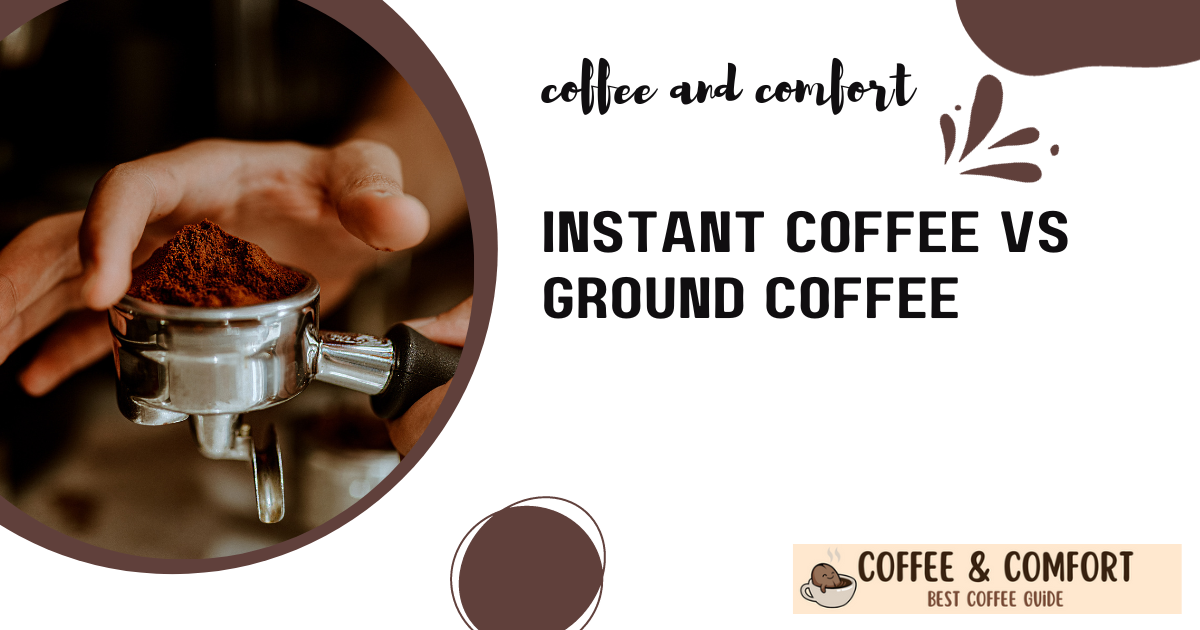Both instant and ground coffee originate from the same place – coffee beans! The difference lies in how they are processed and brewed.
Instant coffee is made from brewed coffee that has been freeze-dried or spray-dried into soluble powder or granules.
Ground coffee refers to roasted coffee beans ground into coarse to fine particles right before brewing. While both aim to provide that delicious coffee taste, they go through different processes to get there.
What is instant coffee?
Instant coffee is coffee brewed and then dried into soluble powder or granules. To make instant coffee, add hot water or milk to the powder.
The soluble coffee dissolves quickly, saving you time than brewing ground coffee. The convenience of instant coffee has made it a pantry staple, great for rushed mornings or making iced coffee in a snap.
On the downside, since instant coffee is pre-brewed and dried, fresh ground coffee can lose some flavor and aroma.
However, manufacturers are improving at preserving the coffee taste in freeze-dried crystals.
What is ground coffee?
Ground coffee is made from whole roasted coffee beans that are ground into fine or coarse particles right before brewing.
This allows the natural oils in the beans to be preserved longer than instant coffee. You need a brewing method like a French press, drip machine, or pour-over to make coffee from ground beans.
While it takes more time and work than instant, ground coffee allows you to extract the fullest, freshest flavor from the beans. You can also control the grind size and brew time to make anything from weak to strong coffee.
The aroma and taste of freshly ground beans are hard to replicate with instant coffee.
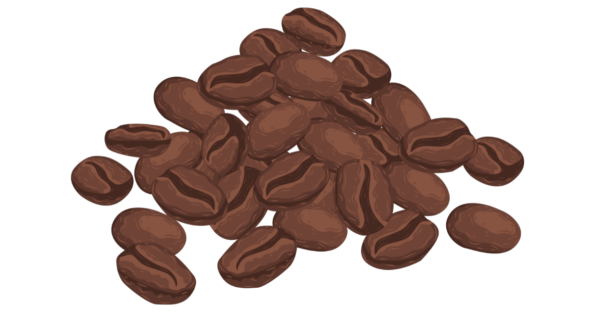
Table of Differences Between instant and ground coffee
Here is a table comparing some key differences between instant coffee and ground coffee:
| Characteristic | Instant Coffee | Ground Coffee |
|---|---|---|
| Brewing Time | Fast, 1-2 minutes | Slower, 3-5 minutes |
| Brew Method | Just add hot water | Requires brewer like drip or French press |
| Flavor | More bitter, less aromatic | More complex, nuanced flavors |
| Caffeine Content | Lower, 30-90mg per 8oz cup | Higher, 100-200mg per 8oz cup |
| Cost | Less expensive, $0.20-$0.50 per serving | More expensive, $0.40-$2.00+ per serving |
| Shelf Life | Longer, 1-2 years unopened | Shorter, 1-2 months |
| Portability | More portable | Less portable |
| Use Cases | Travel, office, convenience | Home brewing, specialty drinks |
Brewing Time
One of the biggest differences between instant and ground coffee is brewing time. Instant coffee is designed to save you time in the morning.
All you need is hot water – add the water to the instant coffee granules or powder and stir. This allows you to prepare a cup of coffee in under a minute. It’s perfect when you’re in a rush or need coffee.
In contrast, ground coffee takes more time to brew. You must use a brewing device like a drip coffee machine, French press, or pour-over. The ground coffee must be steeped in hot water for several minutes to extract the flavor properly.
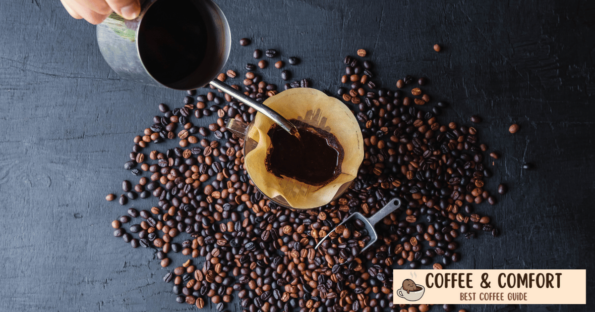
Total brew time can take 5-10 minutes, depending on the method. While it does require more time and effort, brewing ground coffee allows you to extract more complex flavors from the beans and customize strength.
So, if you have extra time in the morning, opt for ground coffee for a fresher, fuller taste. But when you need coffee fast, instant is the way to go.
Brewing Method
When it comes to brewing instant and ground coffee, the main difference is in the preparation method. With instant coffee, I need to add hot water and stir to dissolve the powder or granules.
It’s a very quick and convenient way to make a cup of coffee. On the other hand, ground coffee requires a brewing device like a drip coffee machine, French press, or pour-over setup.
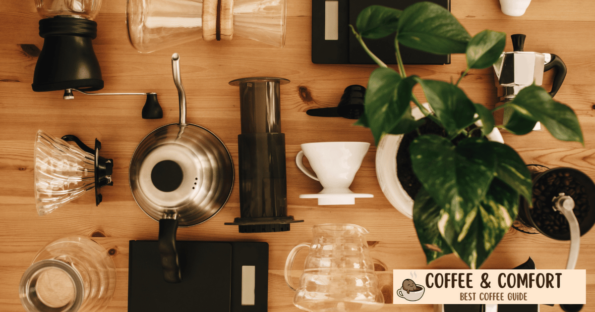
The ground beans must be steeped in hot water for a few minutes to extract flavor properly. Ground coffee takes more time and effort to brew than instant, but many coffee lovers feel the extra steps are worthwhile for a fresher, more flavorful cup.
I like the simplicity of instant coffee on busy mornings, but when I have time, I prefer using my French press with freshly ground beans for a more aromatic and robust coffee experience.
| Brewing Method | Ground Coffee | Instant Coffee |
|---|---|---|
| Drip | Requires drip coffee machine, Medium body | Not applicable |
| Pour Over | Requires pour over equipment, Bright flavor | Not applicable |
| French Press | Requires French press, Full flavor | Not applicable |
| Cold Brew | Steep grounds 12+ hours in cold water, Smooth flavor | Steep instant powder in cold water |
| Espresso | Requires espresso machine, Rich crema | Not applicable |
| Aeropress | Press grounds with Aeropress device, Concentrated | Can press instant coffee but unusual |
| Moka Pot | Requires Moka stove-top maker, Strong flavor | Not recommended |
| Instant | Not applicable | Just add hot water, Convenient |
The different preparation methods mean instant and ground coffee best suit different situations.
Flavor
Regarding taste, instant coffee and ground coffee differ quite a bit. Instant coffee usually has a more bitter, acidic flavor.
This is because turning coffee beans into instant powder removes many natural oils that give ground coffee its aromatic flavors. The drying process also leads to some oxidation that creates bitter compounds.
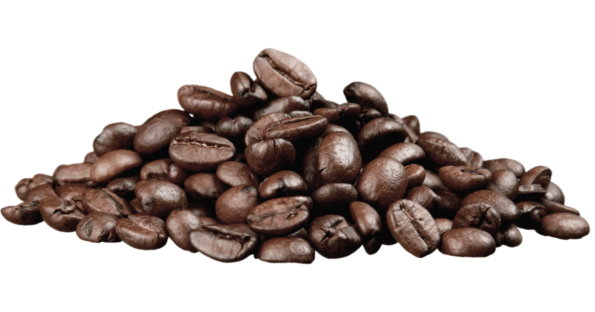
So, I often notice instant coffee has a flatter, less nuanced taste compared to freshly ground beans. Ground coffee retains more natural oils and flavor compounds through brewing methods like drip or French press.
This leads to a more aromatic, complex, and smooth flavor. The ground beans impart subtle notes like fruitiness, nuttiness, or chocolate, depending on the variety.
Instant coffee has a harsher, less satisfying taste, while a rich, flavorful cup of ground coffee is a treat for my taste buds! But instant can be a quick fix when I need some caffeine.
Caffeine Content
When I need a caffeine boost, I’ve noticed that instant and ground coffee don’t provide the same kick. Instant coffee tends to have significantly less caffeine than freshly brewed ground coffee.
This is because some caffeine is lost in drying and extracting soluble particles to make instant powder.
One cup of instant coffee typically contains 30–90mg of caffeine, while one cup of drip coffee has around 100-200mg. The exact amounts can vary between brands and bean origin, but ground coffee consistently has higher caffeine levels.
This means that by drinking instant coffee, I tend to feel less of that immediate energy and alertness that a strong brew gives me. The more intense caffeine from ground coffee helps me feel focused and productive during busy mornings.
However, the lower caffeine levels in instant coffee may be preferable for someone sensitive to caffeine or who wants a coffee later in the day without disrupting sleep.
Both have their purpose, but I go for freshly ground beans whenever I need a caffeine boost.
Cost
Instant and ground coffee have a significant price difference when considering my coffee budget. Instant coffee is generally less expensive than ground coffee per serving.
A jar of instant coffee powder can make dozens of cups of coffee for just a few dollars. On the other hand, buying quality ground coffee and using a brewing method like pour-over or French press costs more per individual cup.
Roasting, grinding, packaging, and shipping whole coffee beans raise the price of ground coffee. Factors like the origin, variety, roast profile, freshness, and grinding process also contribute to the higher cost.
As a regular coffee drinker, the lower price point of instant coffee appeals to me for everyday convenience.
But it’s also worth splurging on fresh specialty-grade ground coffee for a delicious occasional treat. The cost difference means I can enjoy both types while staying within budget.
Instant satisfies my daily caffeine craving, while ground coffee makes a nice weekend indulgence.
Shelf Life
One major difference between instant and ground coffee that impacts me as a consumer is their shelf lives. Instant coffee has a very long shelf life if stored properly.
The powder is shelf-stable and can last 1-2 years unopened without losing freshness or flavor. Once opened, the powder may lose some aroma after 6-12 months but remains drinkable.
On the other hand, ground coffee has a much shorter shelf life of only 1-2 months. Oxygen, light, heat, and moisture can cause the natural oils in ground beans to rancid quickly after grinding.
| Coffee Type | Shelf Life | Notes |
|---|---|---|
| Instant Coffee | 1-2 years unopened | Stays fresh when unopened due to lack of oxygen exposure |
| 6-12 months opened | Starts losing flavor and aroma once opened and exposed to oxygen | |
| Ground Coffee | 1-2 weeks after roasting | Best flavor in the first 2 weeks after roasting |
| 1-2 months after purchase | Goes stale quickly once ground due to oxygen exposure | |
| Whole bean coffee | 6-12 months unopened | Longer shelf life when whole beans are unopened |
| 2-3 weeks after opening | Best brewed within 3 weeks of opening bag |
So, instant coffee has the advantage of longevity for daily coffee drinking. I can keep a jar handy for several months without worrying about waste. But ground coffee is best brewed within days of grinding for optimal flavor and freshness.
This means purchasing ground coffee more frequently and in smaller batches. Properly storing instant and ground coffee helps maximize shelf life, but instant lasts significantly longer before going stale.
Uses
Instant and ground coffee each have advantages that make them useful for different situations in my daily life. One of the main benefits of instant coffee is portability.
| Use Cases | Instant Coffee | Ground Coffee |
|---|---|---|
| Home Brewing | Less common | More common, allows control over brew methods |
| Office/Breakroom | Very common | Less common, equipment required |
| Travel | Very common | Not portable enough |
| Camping/Outdoors | Very common | Not practical without equipment |
| Specialty Drinks | Uncommon | More common for cafe-style drinks |
| Iced Coffee | Good for quick iced coffee | Preferred for cold brew methods |
| Baking/Cooking | Widely used | Can use but instant more common |
The powder or granules dissolve easily in hot water, so instant is convenient when traveling, camping, or whenever I’m on the go. The single-serve packets and jars occupy little space in my bag or suitcase. On the other hand, ground coffee isn’t quite as portable since I need equipment like a brewer, grinder, or French press to make a cup.
But ground beans allow more flavor complexity and control over grind size, water temperature, and brew time. So, at home, I prefer to use fancy pour-over or cold brew methods with fresh ground coffee to make barista-quality drinks.
The intricacy isn’t feasible while traveling, so instant coffee is ideal to have on hand for vacations or busy mornings when I need caffeine fast.
I enjoy instant and ground coffee but think about my situation to determine which suits my needs better.
FAQ
Q: Is instant coffee healthier than ground coffee?
A: There is no significant difference in health benefits between instant and ground coffee. Both contain antioxidants and other active compounds that can provide health benefits when consumed in moderation as part of a healthy lifestyle.
Q: Does instant coffee have added sugar?
A: Plain instant coffee contains no added sugars. However, some flavored instant coffee varieties do contain added sugars or sweeteners. Always check the ingredients label if you want to avoid added sugars.
Q: Is the caffeine content the same in instant and ground coffee?
A: No, instant coffee typically contains less caffeine than brewed ground coffee. Instant coffee can have 30-90mg of caffeine per 8oz cup, while ground coffee has around 100-200mg per 8oz cup.
Q: Is ground coffee better than instant coffee?
A: This is a matter of personal preference. Ground coffee is considered of higher quality, with a more complex flavor and aroma. But instant coffee offers convenience. The best option depends on your priorities and individual taste preferences.
Q: How long does brewed ground coffee last compare to instant?
A: Freshly brewed ground coffee lasts only 4 hours maximum before going stale. Instant coffee lasts 1-2 years unopened and 6-12 months once opened.

My name is Michael Jones, and I’m a coffee enthusiast and expert based in the US. I run my own coffee shop, and I’m passionate about everything related to coffee. On my website, Coffee and Comfort, I share my knowledge and tips to help you elevate your coffee experience. Whether you’re a beginner brewer or a seasoned barista, I have something for everyone. I’ll teach you how to choose the right coffee beans, grind them perfectly, and brew a delicious cup of coffee at home. I’ll also share tips on how to make different coffee drinks, like lattes, cappuccinos, and espressos. But more than just teaching you about coffee, I want to help you create a coffee lifestyle that you love. Coffee is more than just a beverage; it’s a way to connect with people and enjoy the simple things in life.
